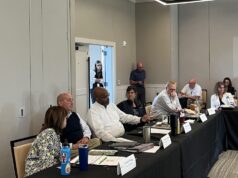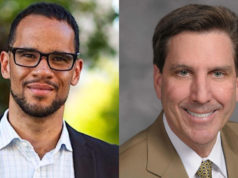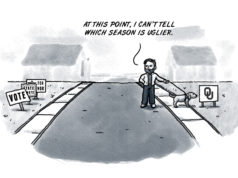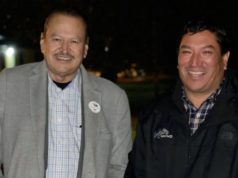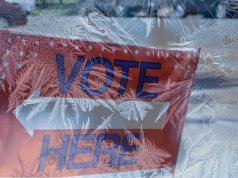In our “land of the free,” does the two-party system have you feeling bound to lose?
Does the idea of registering as either Republican or Democrat sound about as appealing as choosing which type of flesh-eating disease you’d like to die from?
Well fret no more, U.S. citizen who is 18 years or older: You can now enjoy an added benefit if you have registered as an “independent” voter in Oklahoma!
That’s right, for the low cost of absolutely nothing, you, too, can exercise your right to vote without having the pesky affiliation of Democrat or Republican sticking to your public records. Moreover, as a registered independent voter in Oklahoma, you’ll be allowed to participate in one of the March 1 presidential preferential primaries.
But act fast! This new-benefit offer is only good through 2018.
A problematic exclusion
Oklahoma has a closed primary system, which means only voters registered with a recognized political party may vote for that party’s candidates in primary and runoff elections unless, to paraphrase info found on the State Election Board’s website, authorized by the party.
Without such authorization, independents have historically been barred from voting in primary elections. This exclusion is problematic from a capital-D Democracy standpoint, as the Tulsa World’s editorial board pointed out Tuesday:
This is especially troubling for offices where the duties are essentially apolitical, such as sheriffs and county administrative positions. Meanwhile, independent voters get to pay taxes to support those primaries where their votes aren’t welcome.
Perhaps recognizing this lapse in liberty, the Oklahoma Democratic Party voted in late July 2015 to authorize registered independents to vote in all of their primaries from 2016 to 2018. The party then officially welcomed independents in November 2015.
As noted in Silas Allen’s coverage of last year’s vote for Newsok.com, opening up democratic ballots to independents has the possible effect of making Democrats seem more welcoming than Republicans, potentially luring those votes in general elections.
In the same story, then-Republican Party chairman Randy Brogdon scoffed at the move, saying it would water down the left’s base. But Sen. David Holt (R-OKC) suggested Republicans should consider doing the same:
“We’re then the party denying a group of people that includes disproportionately large numbers of members of the Millennial Generation,” he said. “If one party seems more welcoming than another, than the one that seems not as welcoming has to think about their next move and whether they need to match what the opposition is doing.”
Common knowledge
To those paying any attention to state politics, the uptick of registered independents is well-documented. The State Election Board releases voter-registration data on Jan. 15 of each year, and most larger news outlets had their take on the press release the same day, while others limped in this week.
Just in case you’re unaware, the percentages of Oklahomans registering as Republicans and independents (no party) have have increased since 2012. During the same period, the state’s share of Democrats has fallen from 47.2 percent to 42.1 percent.

You can view the data for yourself over at the election board’s website, or download this table, which has the latest stats along with a roundup of stats since 2012:
https://nondoc.com/wp-content/uploads/2016/01/OklahomaJan2016VoterRegData.csv.xlsx” download=”all” viewer=”microsoft”]Registration deadline Feb. 5
According to the state’s election board, those wishing to register or change their party affiliation ahead of the March 1 Oklahoma presidential primary will have to do so in person by Feb. 5 or have a registration form mailed no later than Feb. 6. For more information about voting in Oklahoma, contact your local County Election Board or the State Election Board.











